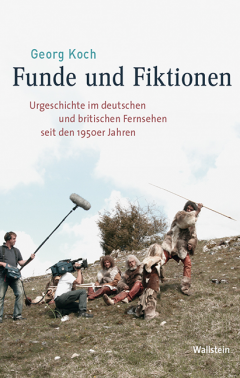Georg Koch
Subsidised by the VolkswagenFoundation in the research project ‘Living History: Re-enacted Prehistory between Research and Popular Performance’
The project analyses the representation of prehistory in German and British television documentaries in the last five decades.
In contrast to the well-reviewed contemporary history on TV, there are some difficulties in staging prehistory: for example, there are no audio- or video-sources preserved from the Stone Age and we have not found any contemporary witnesses – yet. Just showing fossils does not fit recent viewing habits. That is why prehistory on television is transformed into different modes of visualisation, where fact and fiction have a mutual relation.
The goal of the project is to investigate how the television producers handle the incomplete source situation. It examines the changing narratives and visualisations of televised prehistory. It therefore enquires after the intentions and public perception of the productions, as well as their relation to academic researchers.
It analyses different types of presentation. On the one hand, it considers documentaries about the work of archaeology with scenic elements – so-called re-enactments. On the other hand, the project examines TV programmes with experimental character – scenes where experts present prehistoric reconstructions and so called ‘docusoaps’, which show lay people staging the past in a historical setting in front of the camera.
The project aims to explain how far the development of staged prehistory is affected by changes in film technology and the influence of the Western European so-called knowledge and experience society since the 1970s.
Therefore, the project examines on the one hand the relationship between science and television in Britain and Germany in this period. It explores the popularisation of academic knowledge as an active and passive process.
On the other hand, it asks how far growing commercial pressure, more leisure time with an increasing demand for amusement and the importance of higher education for success in the society lead to a closer interweaving of education and entertainment programmes – so-called ‘edutainment’ or ‘histotainment’ formats.
Georg Koch has successfully completed his promotion on 04.07.2018.

